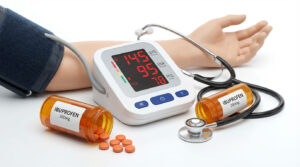Do you ever feel like you’re on a hormonal rollercoaster? One week you’re feeling energetic and clear-headed, and the next you’re dealing with frustrating mood swings, persistent fatigue that sleep can’t seem to fix, unexplained weight gain, or stubborn hormonal acne along your jawline. If this sounds familiar, you’re not alone. These are all classic signs of a hormonal imbalance.
- The "Why": Understanding Hormonal Imbalance in Women
- The Foundation: Building Your Hormone-Balancing Plate
- The Superstars: Specific Foods and Their Hormonal Superpowers
- The Saboteurs: Foods and Habits That Disrupt Your Hormones
- Condition-Specific Dietary Strategies
- "Don't Guess, Get Tested": The Role of Blood Tests
- Conclusion: Your Journey to Hormonal Harmony
- Frequently Asked Questions (FAQ)
Hormones are the body’s powerful chemical messengers, conducting a complex symphony that dictates everything from your mood and metabolism to your menstrual cycle. When they are out of sync, the entire system can feel chaotic. The great news is that you have an incredibly powerful tool to help bring them back into harmony: your diet.

This guide is for women in the U.S. who are seeking to understand how to naturally balance hormones using the food they eat every day. While there is no single magic bullet, a consistent diet rich in specific hormone balancing foods for women can provide the essential building blocks for hormone production, support your body’s natural detoxification pathways, and reduce the inflammation that can throw your system off track, leading to significant improvements in your overall well-being.
The “Why”: Understanding Hormonal Imbalance in Women
Before we dive into the specific foods, it’s helpful to understand the key players and why they can fall out of balance. This knowledge can validate your experiences and empower you to make more targeted dietary choices.
What Are Hormones, Really?
Think of hormones as the project managers of your body. They are produced by your endocrine glands and travel through your bloodstream to tell your cells and organs what to do. The key hormones for women’s health include:
- Estrogen: The primary female sex hormone, responsible for regulating the menstrual cycle, supporting bone health, and influencing mood.
- Progesterone: The “pro-gestation” hormone that balances estrogen, supports the uterine lining, and has a calming effect.
- Testosterone: While often thought of as a male hormone, women produce it in smaller amounts. It’s crucial for libido, muscle mass, and energy.
- Cortisol: Your main “stress hormone.” In short bursts, it’s helpful, but chronically high levels can disrupt all other hormones.
- Thyroid Hormones (T3 & T4): The masters of your metabolism, controlling how your body uses energy.
Common Signs Your Hormones Are Out of Balance
A hormonal imbalance can manifest in a wide variety of ways. You might be experiencing one or several of the following:
- Irregular, heavy, or painful periods
- Persistent and unexplained weight gain, especially around the abdomen
- Chronic fatigue that isn’t relieved by sleep
- Anxiety, irritability, and dramatic mood swings
- Stubborn acne, particularly along the chin and jawline
- Difficulty falling or staying asleep (insomnia)
- “Brain fog” or trouble concentrating
- Low libido or sexual dysfunction
What Causes Hormonal Imbalance?
Your delicate hormonal symphony can be disrupted by a number of factors common in modern life. These include chronic stress, a diet high in sugar and processed foods, lack of quality sleep, exposure to environmental toxins, and underlying medical conditions like Polycystic Ovary Syndrome (PCOS) or thyroid disorders.
The Foundation: Building Your Hormone-Balancing Plate
The first step to using food to balance hormones is to ensure you’re giving your body the fundamental raw materials it needs. Think of your plate as the construction site for your hormones.

Healthy Fats: The Building Blocks of Hormones
This is the most critical and often overlooked principle of hormonal health. Your body cannot produce its steroid hormones—including estrogen, progesterone, and testosterone—without an adequate supply of cholesterol and fatty acids. This is the scientific “why” behind healthy fats for hormone balance. Starving your body of healthy fats is like asking a construction crew to build a house without any bricks.
Top Sources: Avocado, extra virgin olive oil, nuts (especially walnuts and almonds), seeds (chia, flax, hemp), and coconut oil.
Quality Protein: The Amino Acid Powerhouse
The amino acids derived from protein are essential for countless bodily functions, including the production of peptide hormones (like insulin) and supporting the liver’s crucial detoxification processes. A steady supply of protein also helps stabilize your blood sugar, which is key to preventing the insulin spikes that can disrupt your entire endocrine system.
Top Sources: Wild-caught salmon, organic chicken and turkey, grass-fed beef, lentils, chickpeas, and quinoa.
Smart Carbs & Fiber: The Detox and Blood Sugar Regulators
The type of carbohydrates you eat has a profound impact on your hormones, primarily through their effect on blood sugar and detoxification.
- Fiber and Estrogen DetoxFiber plays a starring role in preventing foods for estrogen dominance. After your liver processes used-up estrogen, it sends it to your gut to be eliminated. Fiber acts like a sponge, binding to this excess estrogen and ensuring it is carried out of the body through regular bowel movements. Without enough fiber, this estrogen can be reabsorbed back into your bloodstream, creating an unhealthy surplus.

- Blood Sugar BalanceHigh-fiber carbohydrates, like those found in whole grains and vegetables, are digested slowly. This prevents the sharp spikes in blood sugar and insulin that come from eating refined carbs and sugar. Stable blood sugar is the foundation for a stable hormonal system.
Top Sources: All vegetables (especially leafy greens), berries, quinoa, oats, beans, and lentils.
The Superstars: Specific Foods and Their Hormonal Superpowers
Beyond the foundational macronutrients, certain foods contain unique compounds that make them superstars among hormone balancing foods for women.

Cruciferous Vegetables: The Estrogen Detoxifiers
If you are concerned about foods for estrogen dominance, cruciferous vegetables should be your best friend. This family of veggies—which includes broccoli, cauliflower, kale, brussels sprouts, and cabbage—is rich in a powerful compound called Indole-3-Carbinol (I3C).
The science is fascinating: I3C actively supports the liver’s Phase I and Phase II detoxification pathways. It helps your body convert strong, potentially problematic estrogens into weaker, less harmful forms that can be easily eliminated. Adding a daily serving of cruciferous vegetables estrogen metabolism is one of the most effective dietary strategies to balance hormones.
Seeds: Your Monthly Cycle Support System
The practice of seed cycling for hormone balance is gaining popularity for its gentle, food-based approach to regulating the menstrual cycle. It involves eating specific seeds during the two main phases of your cycle to support the dominant hormones of that phase.

- Follicular Phase (Day 1 of your period to ovulation): Focus on 1-2 tablespoons daily of ground flax and pumpkin seeds. Flax seeds contain lignans, a type of phytoestrogen that helps modulate estrogen levels, while pumpkin seeds provide the zinc needed to prime your body for progesterone production in the next phase.
- Luteal Phase (Ovulation to your next period): Switch to 1-2 tablespoons daily of sesame and sunflower seeds. Sesame seeds are thought to support progesterone, while sunflower seeds provide selenium, a key nutrient for liver health and detoxification.
The Gut-Hormone Connection: Your “Estrobolome”
Emerging science has revealed a profound connection between gut health and hormones. Your gut is home to a specific collection of bacteria, now known as the “estrobolome,” whose primary job is to help process and metabolize estrogen.
An unhealthy gut microbiome—caused by stress, a poor diet, or antibiotics—can impair the function of your estrobolome. This means your body can’t effectively get rid of used-up estrogen, leading to recirculation and a state of estrogen dominance. To support your gut, incorporate probiotic-rich foods like plain yogurt, kefir, kimchi, sauerkraut, and kombucha into your diet.
The Saboteurs: Foods and Habits That Disrupt Your Hormones
Just as important as what you add to your diet is what you limit or remove. Certain foods and drinks are known to be major hormone disruptors.

- Sugar and Refined Carbohydrates: These cause a rapid spike in your blood sugar, forcing your pancreas to pump out large amounts of insulin. Chronically high insulin is a major driver of hormonal imbalance, disrupting ovulation and increasing the production of androgens, which can worsen conditions like PCOS and foods for hormonal acne.
- Unhealthy Fats and Processed Foods: Industrially processed vegetable oils (like soybean, corn, and cottonseed oil) are high in omega-6 fatty acids, which can be inflammatory when consumed in excess. Trans fats, found in many processed and fried foods, should be avoided entirely.
- Excessive Caffeine and Alcohol: While a morning cup of coffee is fine for most, excessive caffeine can elevate your stress hormone, cortisol. Chronically high cortisol can suppress progesterone production and disrupt the delicate balance of your entire endocrine system. Alcohol places a significant burden on the liver, hindering its ability to detoxify hormones.
The Soy Controversy: Is Soy Good for Women’s Hormones?
This is a nuanced topic. Soy contains compounds called isoflavones, which are phytoestrogens (meaning “plant estrogens”). They can bind to the same receptors as your body’s own estrogen, but they have a much weaker effect.
- For Menopause: In women with low estrogen levels, such as during menopause, the gentle estrogenic effect of whole soy foods (edamame, organic tofu, tempeh) can be beneficial for managing symptoms like hot flashes.
- For Estrogen Dominance: For women with high estrogen, there is some concern that high doses of highly processed soy (like soy protein isolate powders) could add to the estrogenic load.
The Verdict: Most experts agree that moderate consumption of whole, organic, non-GMO soy foods is safe and can be a healthy part of a hormone-balancing diet.
Condition-Specific Dietary Strategies
While the foundational principles apply to everyone, you can further tailor your diet to address specific hormonal challenges.

Diet for PCOS (Polycystic Ovary Syndrome)
The primary goal of a PCOS diet is to manage insulin resistance. This means building every meal around protein, healthy fat, and fiber.
- Focus on: Low-glycemic fruits (berries), non-starchy vegetables, lean proteins, and anti-inflammatory foods like fatty fish and turmeric.
- Consider: Spearmint tea has been shown in some studies to have anti-androgenic effects, which can help with symptoms like acne and hirsutism.
Diet for Perimenopause and Menopause
As estrogen and progesterone decline, your dietary needs shift. Key foods for menopause include:
- Phytoestrogens: Incorporate flax seeds, chickpeas, and whole soy foods to help buffer the effects of declining estrogen.
- Calcium & Vitamin D: To protect against osteoporosis, focus on leafy greens, fortified plant milks, and sardines.
- Quality Protein: To help maintain muscle mass, which naturally declines with age. Aim for a protein source at every meal.
“Don’t Guess, Get Tested”: The Role of Blood Tests
While these hormone balancing foods for women are powerful, their effectiveness is maximized when you know exactly which hormones you need to support. A racing heart could be a sign of high cortisol, low progesterone, or an overactive thyroid. Guessing can lead to frustration and delayed results.

A blood test is the only way to get a definitive diagnosis of a hormonal imbalance.
Your Path to Clarity with HealthCareOnTime.com
To create a truly targeted plan, you need data. Services like HealthCareOnTime.com make it easy to get the answers you need. You can order a comprehensive Female Hormone Panel online, which measures key hormones like Estrogen, Progesterone, Testosterone, and Thyroid hormones. With convenient at-home sample collection and results from a certified lab, you get a clear snapshot of your hormonal health. This empowers you to work with your doctor on a precise plan that combines dietary changes with any necessary medical support.
Conclusion: Your Journey to Hormonal Harmony
Your journey to balance hormones is a profound act of self-care. It’s about nourishing your body from the inside out to support the intricate systems that govern your energy, mood, and vitality. The core principles are simple yet powerful: build your plate around whole-food sources of healthy fats, quality protein, and high-fiber carbohydrates. Incorporate superstar hormone balancing foods for women like cruciferous vegetables and a variety of seeds. At the same time, minimize your intake of sugar, processed foods, and other hormonal disruptors.

Adopting these dietary habits is not a restrictive diet; it’s a sustainable lifestyle that pays dividends in the form of better energy, a more stable mood, and a deeper connection to your body’s rhythms. Ready to start your journey? Begin by incorporating these foods into your daily routine. And when you’re ready to stop guessing and start knowing, visit HealthCareOnTime.com to order your Female Hormone Panel.









